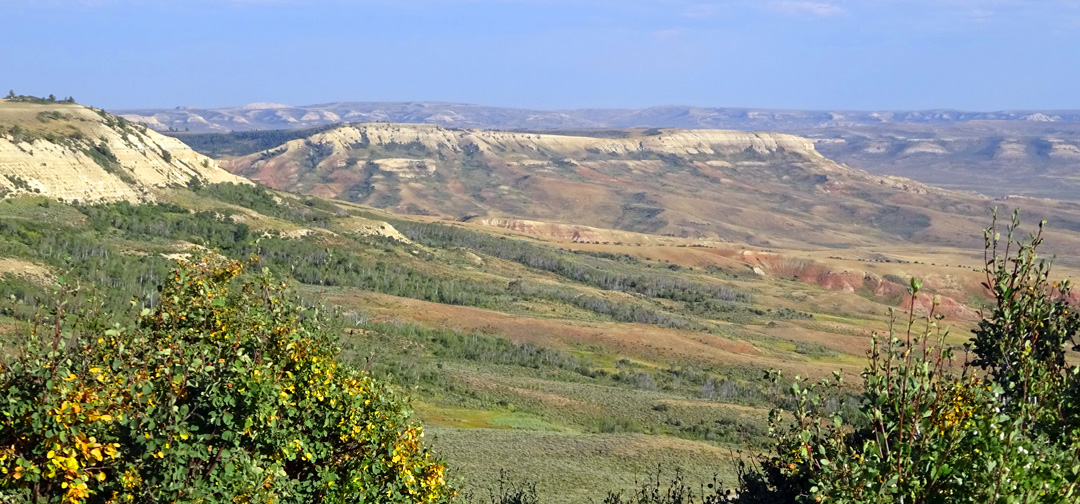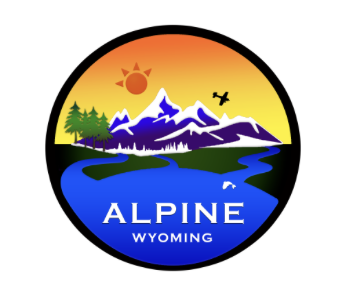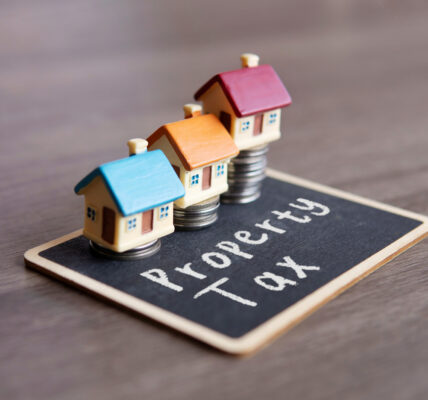• Land sales would raise federal revenue and open up parcels for housing, according to Utah senator’s plan. But critics say it would result in the loss of lands now used for hunting and outdoor recreation.
By Andrew Graham, WyoFile.com
Senate Republicans will consider mandating a sell-off of an estimated 2.5 million acres of public land, including possible parcels in Wyoming, in the budget bill they are now reconciling, a proposal Utah Sen. Mike Lee released Wednesday night shows.
The plan from Lee describes selling the land as both a way to raise money to fill federal coffers and to open up land for housing in western communities that have struggled with enough supply. Lee, who chairs the Senate Committee on Energy and Natural Resources, has long sought to trim the amount of federal land owned by all Americans.
Ahead of Wednesday’s announcement, conservation groups and hunter advocacy organizations were lining up to oppose the public land sale, which has in the past been a politically unpopular idea throughout the West.
“Public lands need to stay in public hands and the Muley Fanatic Foundation opposes anything or anyone that threatens our lands that we hold dear for personal use,” Joey Faigle, president and CEO of the foundation, told WyoFile in a statement Monday, two days before Lee released his language. The nonprofit is based in southwest Wyoming and represents hunters.
“Selling off our lands without consulting the communities who use them will risk permanently losing the places we use for hunting, outdoor recreation, and so much more,” Faigle wrote. “It will also affect those traditions to be passed on to our future generations. The public land sales being included in the reconciliation needs to stop now.”
Lee’s proposal mandates federal land managers offload land from 11 possible western states, with the notable exception of Montana.
Congressional delegates from Wyoming’s northern neighbor – including former interior secretary and current Republican Rep. Ryan Zinke – have rejected efforts to sell federal land. Zinke’s opposition to a similar proposal in the House last month led to that body ultimately jettisoning the idea when it passed its version of the One Big Beautiful Bill Act, a sprawling budget measure designed to advance President Donald Trump’s priorities of rapidly increasing the deportation of immigrants, beefing up military and security spending and extending tax cuts that critics say mostly benefit wealthy Americans and corporations.
Iconic public lands appear largely exempt from sale under Lee’s proposal. National parks, national monuments, wildlife refuges, national seashores and lakeshores, national battlefields and nine other designated areas are all excluded. Lands that have ongoing leases or use claims, such as for grazing or mining or mineral extraction, also can’t be sold.
Wyoming politicians and public land
Wyoming Rep. Harriet Hageman, a Republican, backed the House proposal to sell off land to help blunt the impacts of Trump’s spending package on the federal deficit. And in April, Wyoming’s two Republican senators voted against a Democrat-sponsored measure to block the sale of federal land to generate revenue.
Sen. John Barrasso’s communications director, Laura Mengelkamp, did not respond to a WyoFile request Wednesday for comment on Lee’s proposal. A spokesperson for Sen. Cynthia Lummis said her office was still evaluating the proposal and did not yet have a comment.
But last week, Lummis issued a statement, first reported by Cowboy State Daily, backing Lee’s general approach to the sale of public lands, if not the concept of the proposal the Utah senator released Wednesday.
“I support Senator Mike Lee’s efforts to address the reality that federal ownership of nearly half of all Western land — exceeding 50% in states like Wyoming, Nevada, and Utah — creates significant challenges for local communities, state governments, and efficient land management,” she said in the statement. Her office provided WyoFile a copy of the statement this week.
“The federal government doesn’t need to perpetually own every piece of land it currently holds, and we must have honest conversations about smart, strategic land management that serves our communities while protecting our natural treasures,” Lummis said.
Proposal angers public access groups
Lee’s proposal would require the Interior Department to sell between 0.25% and 0.5% of the total acreage of public lands managed by the U.S. Bureau of Land Management, and another 0.5% to 0.75% of all lands managed by the U.S. Forest Service. According to a calculation released Wednesday night by advocacy group the National Wildlife Federation, the upper threshold of those mandates equates to more than 2.5 million acres of land passing out of public hands across the West.
“Mandating the fire sale of up to two-and-a-half million acres of public land violates more than a century of land stewardship, threatens wildlife and clean water, runs directly against widespread public opinion, and will not begin to solve either the budget crisis or the affordable housing crisis,” David Willms, the federation’s associate vice president for public lands, said in a Wednesday night statement.
Willms, an attorney and Wyoming resident, previously worked for former Gov. Matt Mead, a Republican.
Lee’s proposal does not mandate the sale of certain amounts by certain states, so there is no set amount of public land that would go private in Wyoming. Conservation and public access advocates were scrambling Wednesday evening to understand which lands would be targeted by Lee’s proposal, and a more concrete picture is likely to emerge in the coming days and weeks as the U.S. Senate debates.
“This proposal is central to relieving the housing crisis, fulfilling President Trump’s housing and public lands agenda, and creating jobs and strong economic growth in the West,” a statement issued by the Energy and Natural Resources Committee said. The land sale would raise between $5 billion and $10 billion in a decade.
The majority of that money would go toward helping fund the federal budget, while 5% would be spent on deferred maintenance on federal lands in the state where the lands are sold. Another 5% would go to local governments abutting sold parcels for housing development “or other associated needs,” according to the committee’s statement.
The $10 billion the sales could raise would be a drop in the bucket compared to the overall cost of Trump’s spending bill, which largely increases the federal deficit through tax cuts that opponents say overwhelmingly benefit wealthy Americans and corporations. The nonpartisan Congressional Budget Office has estimated the bill will add $2.4 trillion to the federal deficit over the same decade in which Lee would mandate the federal land sales.
“Shoving the sale of public lands back into the budget reconciliation bill, all to fund tax cuts for the wealthy, is a betrayal of future generations and folks on both sides of the aisle,” Michael Carroll, of the The Wilderness Society, said in a statement. “We call on lawmakers who cherish public lands to reject any inclusion of public land sales in the budget reconciliation bill.”
Though the BLM has had swathes of public lands marked for disposal, including in Wyoming, the agency follows a process that includes public participation and generally has allowed local governments to weigh in on when, how and if federal land is sold off or exchanged. That process also directs proceeds from land sales largely toward increasing public access to other federal lands. Lee’s proposal would largely sidestep the BLM’s process and is not limited to lands that have been previously marked for disposal.
Instead, it calls for the interior secretary and secretary of agriculture, both presidential appointees, to select the lands to be sold. The proposal directs those officials to consult with state governors, tribes and local governments to select land suitable for developing housing. The language does not appear to require that development to focus on affordable housing, however, and it also calls for public lands to be sold at fair market prices.
The federal land surrounding Jackson Hole, one community desperately in need of affordable housing, would likely be valued at steep prices.
WyoFile is an independent nonprofit news organization focused on Wyoming people, places and policy.






2 COMMENTS
Comments are closed.